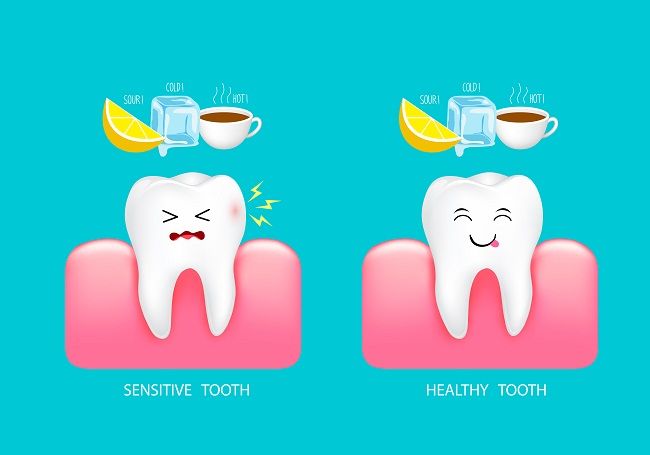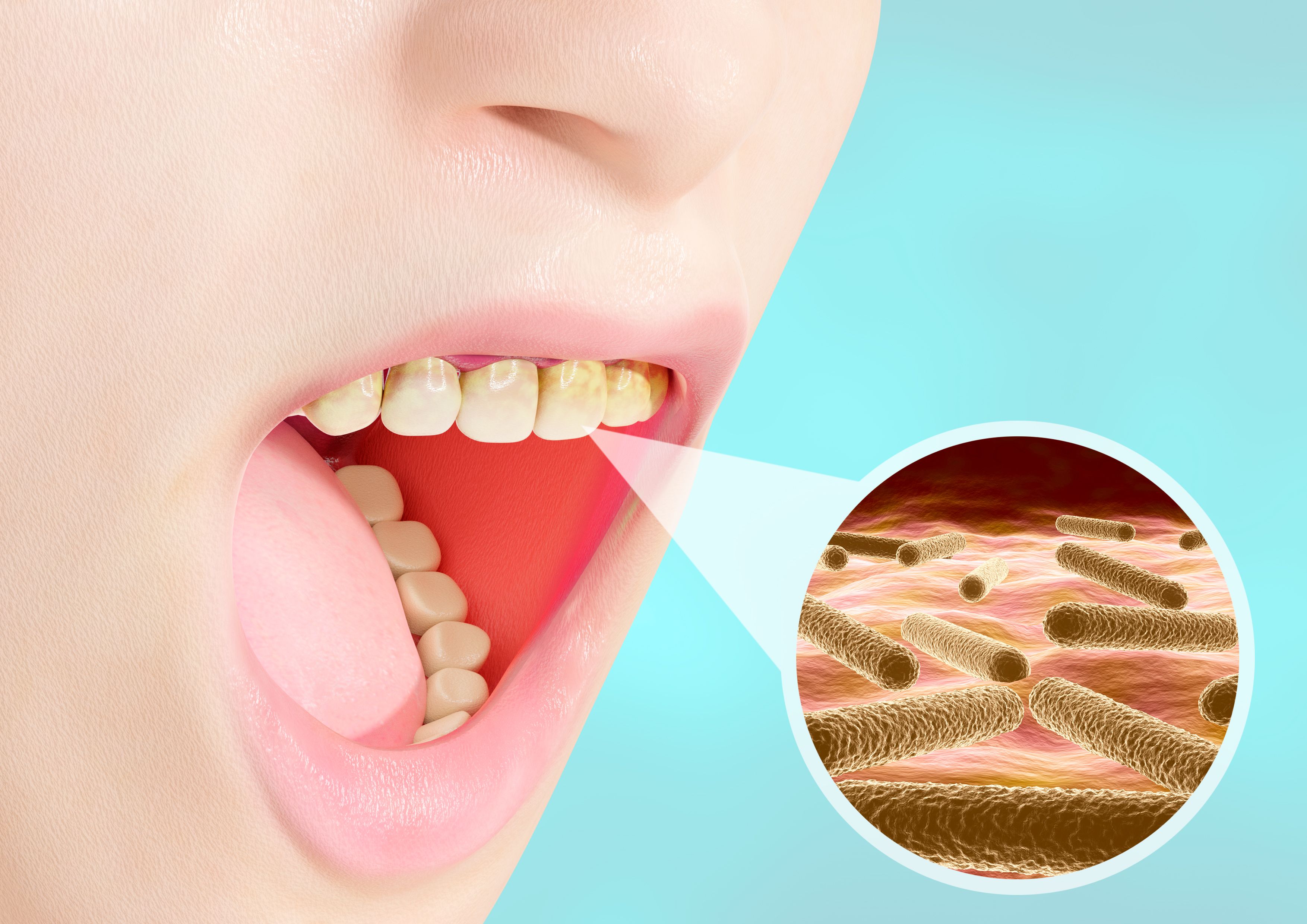Are you familiar with that sharp, sudden pain that shoots through your teeth when you consume something hot, cold, sweet, or acidic? If it is so, you may be experiencing the common dental condition of sensitive teeth. This discomfort can make simple everyday activities like eating or drinking a painful experience, affecting your overall quality of life. However, it is crucial to seek timely treatment to appropriately address teeth sensitivity, alleviate discomfort, and prevent further dental complications.
In this article, we will explore sensitive teeth, their causes, treatment options, and some practical tips which you can follow to avoid them. Understanding the underlying reasons behind tooth sensitivity and taking appropriate action can help you regain oral comfort and maintain a healthy smile. So, let’s explore the world of sensitive teeth and discover why it’s essential to address this issue promptly.
What Are Sensitive Teeth and Their Disadvantages?
Sensitive teeth refer to a dental condition where individuals experience discomfort or pain when their teeth get exposed to certain stimuli. This sensitivity can vary from mild discomfort to sharp, shooting pain. The root cause of sensitive teeth lies in the exposure of dentin, the inner layer of the tooth that contains tiny tubules leading to nerve endings.
When dentin becomes exposed, it can trigger sensations of sensitivity in response to various stimuli, such as hot or cold foods, acidic substances, sugary treats, and even cold air. The disadvantages of sensitive teeth can significantly impact a person’s daily life and oral health. Some of the key disadvantages include:
- Discomfort and Pain: Sensitive teeth can cause significant discomfort and pain, making it difficult to enjoy everyday activities such as eating, drinking, or teeth brushing.
- Dietary Restrictions: Individuals with sensitive teeth often must restrict their diet to avoid triggering sensitivity. They may need to avoid extremely hot or cold foods, beverages, acidic fruits and drinks, and even sweet treats. These dietary limitations can affect nutrition and restrict the enjoyment of various foods and drinks.
- Poor Oral Hygiene: Tooth sensitivity can make brushing and flossing a painful and uncomfortable experience for individuals. Consequently, this discomfort may make individuals reluctant to brush their teeth properly or floss regularly, compromising oral hygiene. Unfortunately, poor oral hygiene practices can give rise to a range of dental problems, including tooth decay, gum disease, and bad breath.
- Dental Anxiety: The fear of experiencing pain or discomfort associated with sensitive teeth can lead to dental anxiety. Individuals may avoid seeking regular dental check-ups or necessary treatments, which can result in the progression of dental issues and further deterioration of oral health.
- Impact on Quality of Life: Sensitivity-related discomfort can significantly impact a person’s overall quality of life. It can cause stress, irritability and affect daily activities, including social interactions and professional engagements. The pain and discomfort may also disrupt sleep patterns, leading to fatigue and reduced productivity.
- Underlying Dental Problems: Sensitive teeth can indicate underlying dental problems, such as cracked teeth, decay, or worn enamel. Ignoring sensitive teeth can allow these issues to progress, leading to more extensive and expensive dental treatments in the future.
- Emotional Well-being: Chronic tooth sensitivity can also have emotional implications. It may lead to frustration, embarrassment, and self-consciousness, mainly if the sensitivity affects social situations or the individual’s smile.
Why It’s Essential to Address Sensitive Teeth Issue?
Addressing sensitive teeth is crucial for several reasons. Firstly, tooth sensitivity can significantly impact a person’s quality of life, leading to discomfort and pain while eating, drinking, or even breathing cold air. By addressing the issue, individuals can regain their ability to enjoy their favorite foods and beverages without sensitivity-related discomfort.
Sensitive teeth can affect a person’s dietary choices, leading to avoiding certain nutritious foods. By addressing tooth sensitivity, individuals can adopt a balanced diet that promotes their overall health, including essential vitamins, minerals, and fiber.
Timely intervention can save individuals from more extensive dental procedures in the future, such as root canals or extractions. Lastly, maintaining oral health is closely linked to overall well-being.
Common Symptoms of Sensitive Teeth

- Tooth Sensitivity: The most apparent symptom is sensitivity in one or more teeth. This sensitivity typically manifests as a sharp, shooting pain or a brief, intense sensation of discomfort when the teeth come into contact with certain stimuli. These stimuli include hot or cold foods and beverages, sweet or acidic foods, cold air, or even brushing and flossing.
- Pain or Discomfort: Individuals with sensitive teeth may experience pain or discomfort that ranges from mild to severe. The pain can be brief and transient, lasting only for a few seconds or lingering longer.
- Painful Reactions: Sensitive teeth can cause various painful reactions in response to different stimuli. For example, consuming hot foods or beverages may result in sudden, sharp pain. Similarly, drinking cold liquids or eating ice cream may elicit shooting pain in the teeth. Chewing on hard or crunchy foods may also cause discomfort.
- Sensitivity to Air: Some individuals with sensitive teeth may feel discomfort or pain when exposed to cold air. The sensitivity to air can be exceptionally bothersome during outdoor activities or in environments with temperature variations. It can occur when breathing through the mouth during cold weather or when drinking cold beverages.
- Discomfort During Oral Care: Sensitive teeth can make brushing and flossing a painful experience. Consequently, individuals with sensitive teeth may be reluctant to brush or floss properly, leading to compromised oral hygiene.
- Gum Sensitivity: Sensitive teeth can also lead to gum sensitivity. The gums may feel tender, sore, or even painful, especially when they come into contact with cold or hot substances. Gum sensitivity can further exacerbate the discomfort experienced with sensitive teeth.
Causes of Sensitive Teeth
- Tooth Enamel Erosion: Tooth enamel, the outer protective layer of the teeth, can gradually wear away due to aggressive brushing, consumption of acidic foods and beverages, and certain medical conditions. The underlying dentin becomes exposed as the enamel erodes, leading to tooth sensitivity.
- Gum Recession: Gum recession is a condition characterized by the withdrawal of the gum tissue from the tooth, which exposes the sensitive roots. This phenomenon occurs when the gum tissue pulls back, revealing the underlying tooth roots.
- Dental Cavities: Cavities, also known as dental caries, can lead to sensitive teeth. When tooth decay progresses, it can reach the inner layers of the tooth, causing sensitivity to temperature and certain foods.

- Cracked or Fractured Teeth: Teeth that are fractured, broken, or chipped can expose the dentin and usually result in tooth sensitivity. It mostly happens due to accidents, dental trauma, or biting on complex objects.
- Teeth Grinding (Bruxism): Habitual grinding or clenching your teeth, especially during sleep, can cause enamel wear and dentin exposure. It may lead to tooth sensitivity and impairs your capability to enjoy your favorite foods.
Treatment Options
- Desensitizing Toothpaste: Desensitizing toothpaste containing compounds like potassium nitrate or strontium chloride can help alleviate tooth sensitivity over time. These ingredients work by blocking nerve signals and reducing discomfort.
- Fluoride Application: Your dentist may apply fluoride varnishes or gels to help strengthen the enamel and reduce tooth sensitivity. Fluoride helps remineralize the tooth surface, providing a protective barrier against sensitivity.
- Dental Bonding or Sealants: In cases of exposed tooth roots or small cracks, dental bonding or sealants can be applied to the affected areas. These procedures help cover and protect the exposed dentin, reducing sensitivity.
- Gum Grafting: Dental professionals may recommend gum grafting surgery for severe gum recession. This procedure requires taking gum tissue from another area in the mouth and attaching it to the affected area. It effectively covers the exposed roots.
- Root Canal Treatment: When extensive tooth decay or infection reaches the tooth pulp and causes tooth sensitivity, the dentist may recommend root canal therapy. This treatment involves removing the infected pulp and sealing the tooth, alleviating sensitivity and saving the tooth from extraction.
Tips for Relief
- Practice Good Oral Hygiene: Proper oral hygiene is crucial in preventing and managing tooth sensitivity. Use a soft-bristled toothbrush and gentle brushing techniques to avoid enamel erosion and gum recession.
- Limit Acidic Foods and Beverages: Acidic foods and drinks can erode tooth enamel and contribute to tooth sensitivity. Limit your consumption of acidic items such as citrus fruits, soda, and sports drinks, and rinse your mouth with water afterward.
- Avoid Teeth Grinding: If you have bruxism, talk to your dentist about using a mouthguard or splint to protect your teeth during sleep. Stress-reducing techniques like exercise or meditation help alleviate teeth-grinding habits.
- Use a Mouthwash for Sensitivity: Some mouthwashes help relieve tooth sensitivity. Look for those containing potassium nitrate or fluoride, which can help reduce sensitivity and strengthen tooth enamel. Do consult your dentist for the best choice that suits your oral health.
- Visit Your Dentist Regularly: Regular dental check-ups are essential for identifying and addressing tooth sensitivity early on. Your dentist can provide personalized advice, monitor the condition, and recommend suitable treatments or preventive measures.
Concluding Thoughts
Addressing sensitive teeth is crucial for maintaining a healthy smile and overall well-being. Various factors are responsible for tooth sensitivity; fortunately, several treatment options are available, from desensitizing toothpaste to dental procedures like bonding and root canal treatment. Following preventive measures and seeking professional dental care can relieve and improve oral health, leading to a better quality of life.
Contact your Pinole dentist, Azadeh Hosseini, DDS, or Ghazal Hosseini, DDS, at Top Pinole Dental to learn about Sensitive Teeth Causes, Treatment, and Tips for Relief.
Resource:
Relation between Tongue and Oral Health
*This media/content or any other on this website does not prescribe, recommend, or prevent any treatment or procedure. Therefore, we highly recommend that you get the advice of a qualified dentist or other medical practitioners regarding your specific dental condition*

